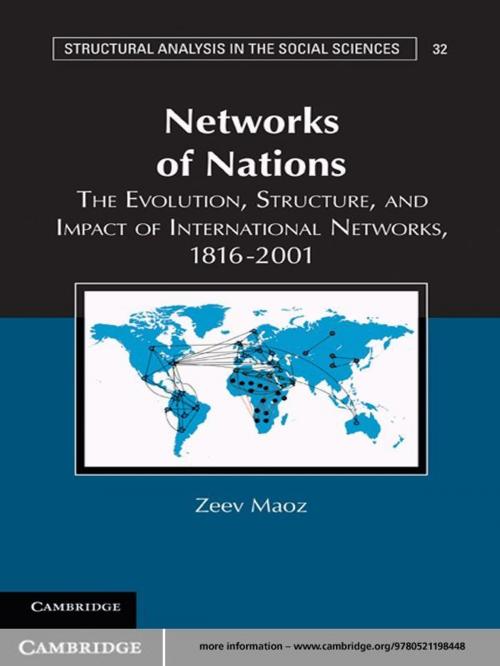Networks of Nations
The Evolution, Structure, and Impact of International Networks, 1816–2001
Nonfiction, Social & Cultural Studies, Political Science, International, International Relations| Author: | Zeev Maoz | ISBN: | 9780511993763 |
| Publisher: | Cambridge University Press | Publication: | December 6, 2010 |
| Imprint: | Cambridge University Press | Language: | English |
| Author: | Zeev Maoz |
| ISBN: | 9780511993763 |
| Publisher: | Cambridge University Press |
| Publication: | December 6, 2010 |
| Imprint: | Cambridge University Press |
| Language: | English |
Maoz views the evolution of international relations over the last two centuries as a set of interacting, cooperative and conflicting networks of states. The networks that emerged are the result of national choice processes about forming or breaking ties with other states. States are constantly concerned with their security and survival in an anarchic world. Their security concerns stem from their external environment and their past conflicts. Because many of them cannot ensure their security by their own power, they need allies to balance against a hostile international environment. The alliance choices made by states define the structure of security cooperation networks and spill over into other cooperative networks, including trade and institutions. Maoz tests his theory by applying social networks analysis (SNA) methods to international relations. He offers a novel perspective as a system of interrelated networks that co-evolve and interact with one another.
Maoz views the evolution of international relations over the last two centuries as a set of interacting, cooperative and conflicting networks of states. The networks that emerged are the result of national choice processes about forming or breaking ties with other states. States are constantly concerned with their security and survival in an anarchic world. Their security concerns stem from their external environment and their past conflicts. Because many of them cannot ensure their security by their own power, they need allies to balance against a hostile international environment. The alliance choices made by states define the structure of security cooperation networks and spill over into other cooperative networks, including trade and institutions. Maoz tests his theory by applying social networks analysis (SNA) methods to international relations. He offers a novel perspective as a system of interrelated networks that co-evolve and interact with one another.















